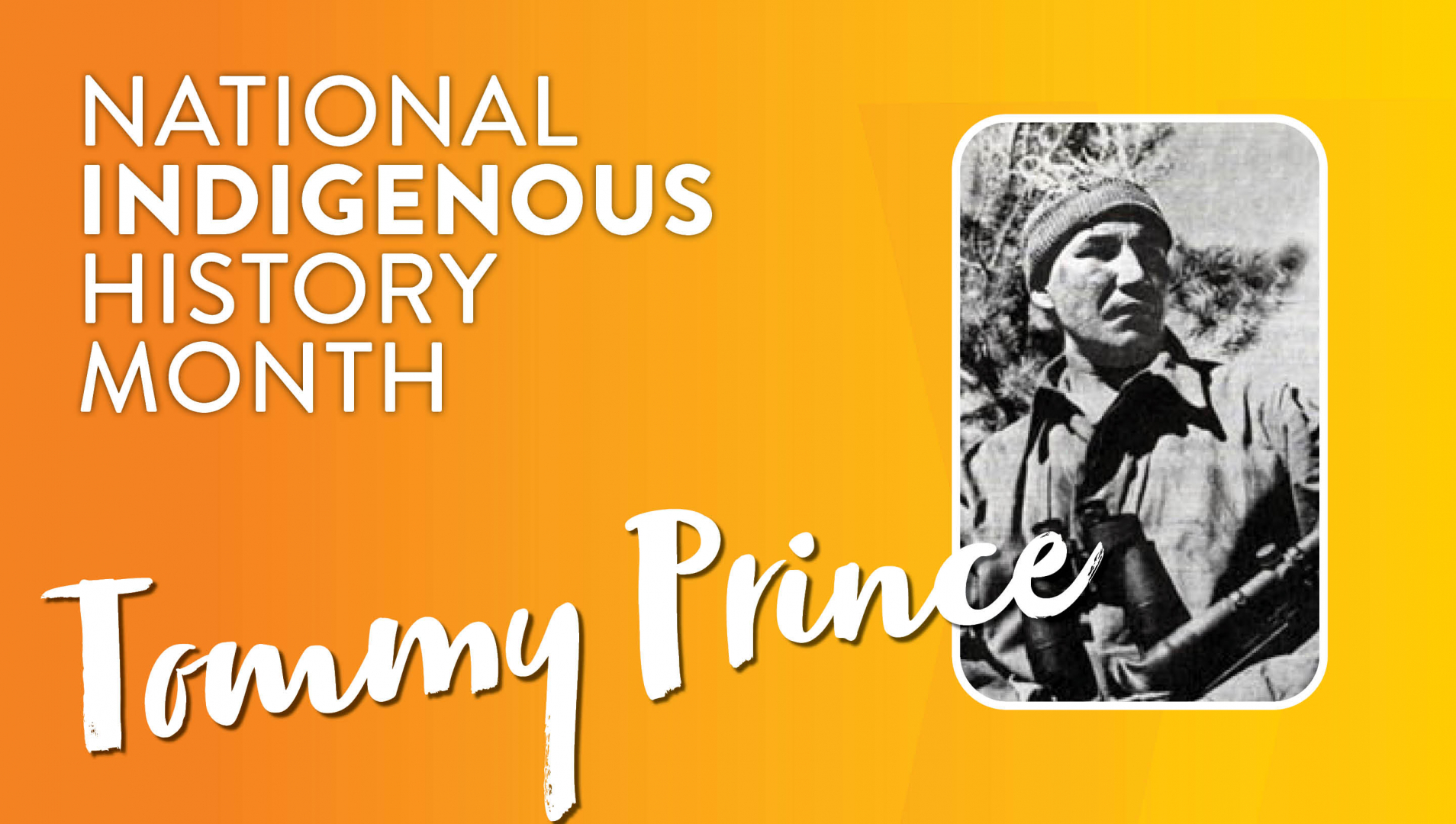NATIONAL INDIGENOUS HISTORY MONTH: Tommy Prince
June 10, 2021
Throughout the month of June as part of National Indigenous History Month we will be honouring the accomplishments and contributions of historical Indigenous Canadians, this week we did some research on war hero, Tommy Prince.
Tommy Prince war hero and Indigenous advocate was born 25 October 1915 in Petersfield, MB. Prince is one of Canada's most-decorated Indigenous war veterans, having been awarded a total of 11 medals in the Second World War and the Korean War. Passing away on 25 November 1977 in Winnipeg, MB. Prince was honoured at his funeral by his First Nation, the province of Manitoba, Canada and the governments of France, Italy and the United States.
Tommy Prince was born in a canvas tent in Petersfield, Manitoba, in October 1915, and was one of 11 children born to Harry and Elizabeth Prince of the Brokenhead band of Ojibwe. He was a descendent of Peguis, the Salteaux chief. When he was five, his family moved to the Brokenhead reserve (now known as Brokenhead Ojibway Nation) in Scanterbury. Prince was a survivor of the residential school system.
Prince became a superb marksman and an excellent tracker on the reserve. His father, a hunter and a trapper, taught him. Prince applied to join the Canadian military several times, but was rejected as Indigenous people faced widespread discrimination and that likely played a role in his rejection. He was finally accepted in the early years of the Second World War, enlisting on 3 June 1940.
Prince’s time in the military began with an assignment to the 1st Field Park Company of the Royal Canadian Engineers. By 1942 Prince was a sergeant with the Canadian Parachute Battalion. Posted to the 1st Canadian Special Service Battalion, he was among a select group of Canadian soldiers sent to train with an American unit to form a specialized assault team. They became the 1st Special Service Force (1st SSF), known to the enemy as the "Devil's Brigade." The name was adopted by Hollywood as the title of a 1968 portrayal of the elite unit. Prince was portrayed as "Chief." Prince distinguished himself with the 1st SSF in Italy and France, using the skills he'd learned growing up on the reserve.
He displayed his covert abilities in a celebrated action near the front line in Anzio, Italy. In February 1944, he volunteered to run a communication line 1,400 metres out to an abandoned farmhouse that sat just 200 metres from a German artillery position. He set up an observation post in the farmhouse and for three days reported on German movements via a communication wire. When the wire was severed during shelling, he disguised himself as a peasant farmer and pretended to work the land around the farmhouse. He stooped to tie his shoes and fixed the wire while German soldiers watched, oblivious to his true identity. At one point, he shook his fist at the Germans, and then at the Allies, pretending to be disgusted with both. His actions resulted in the destruction of four German tanks that had been firing on Allied troops.
In France in the summer of 1944, Prince endured a gruelling trek across rugged terrain to locate an enemy camp, travelling without food or water for 72 hours. He returned to the Allied position and led his brigade to the German encampment, resulting in the capture of more than 1,000 German soldiers. Prince was one of 59 Canadians who were awarded the Silver Star during the Second World War, only three of whom also possessed the Military Medal. Tommy Prince was honourably discharged on 15 June 1945 and returned to Canada.
Prince had a strong sense of civic duty and a fierce pride in his people. He dedicated himself to attaining increased educational and economic opportunities for Indigenous peoples. “All my life I had wanted to do something to help my people recover their good name. I wanted to show they were as good as any white man,” he said.
While Tommy Prince’s tombstone mentions only two of the 11 medals he earned, he is one of the most decorated Indigenous war veterans in Canada. Aside from his significant military contributions to this country, Prince is also remembered as an Indigenous advocate who fought for equality and Indigenous rights.
Want to learn more about Tommy Prince?
- The Canadian Encyclopedia offers an extensive biography of the life of Tommy Prince. Reference Tommy Prince. (2008). Laura Neilson Bonikowsky. The Canadian Encyclopedia. https://www.thecanadianencyclopedia.ca/en/article/tommy-prince#:~:text=Devil's%20Brigade,-Prince%20enlisted%20in&text=By%201942%20Prince%20was%20a,form%20a%20specialized%20assault%20team.
Photo credit: Photo from Manitobans in Profile: Thomas George Prince by D. Bruce Sealey and Peter Van de Vyvere, 1981/Department of National Defence




